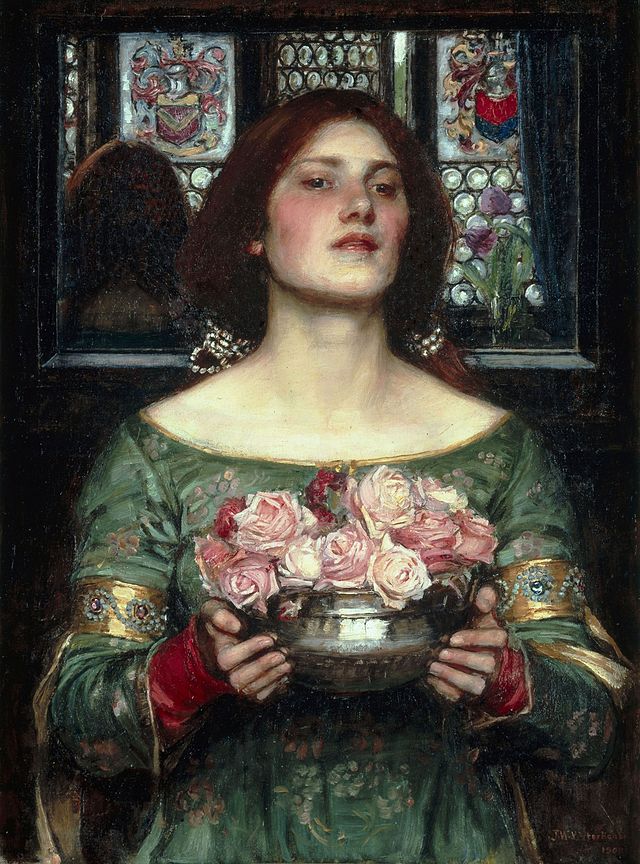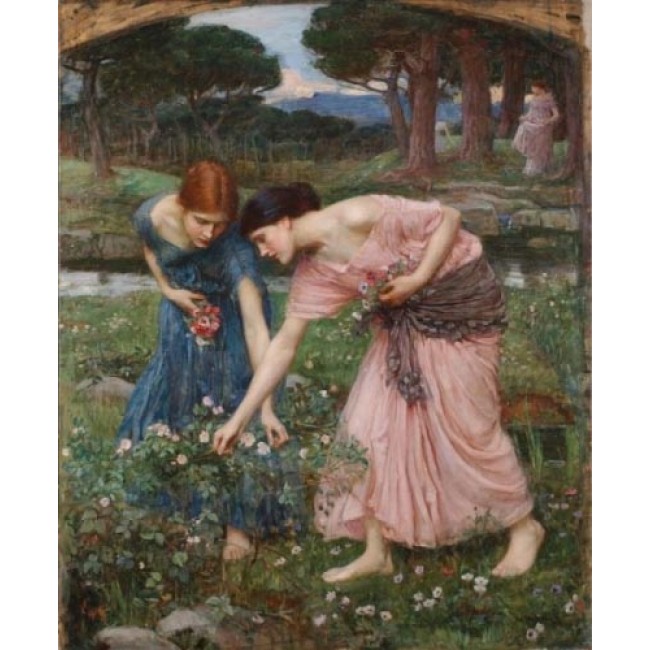For the title of his 1909 painting Gather Ye Rosebuds While Ye May, John William Waterhouse used a line from the poem To the Virgins, to Make Much of Time by Robert Herrick (1597-1674)
Gather ye rosebuds while ye may, Old Time is still a-flying; And this same flower that smiles today Tomorrow will be dying. The glorious lamp of heaven, the sun, The higher he’s a-getting, The sooner will his race be run, And nearer he’s to setting. That age is best which is the first, When youth and blood are warmer; But being spent, the worse, and worst Times still succeed the former. Then be not coy, but use your time, And while ye may, go marry; For having lost but once your prime, You may forever tarry.
In J.W. Waterhouse by Peter Trippi, the author identifies the women in the painting as Persephone and her companions. Since Persephone, along with her mother the goddess Demeter, is associated with the passing seasons it seems fitting that Waterhouse should use her in reference to Herrick’s poem. Soon after Persephone picks her flowers, she will be abducted by Hades and whisked away to the Underworld. Her life will never be the same.
Waterhouse painted a later work with an identical title.

I believe that the poet’s use of the word virgins is not necessarily because of their sexual status, but because it is a word that evokes youth and inexperience. It is about their stage of life and how quickly we can slip into another stage and then another and another until we reach the end. Herrick’s poem is an ode to carpe diem and advises us to be mindful of the opportunities that each day provides. Enjoy the present, for it is ever changing. Any motorcycle rider will tell you, you have to lean into the turn. It’s a good metaphor for life, really. Seize the day, lean into the turns, gather the rosebuds. Find something beautiful and hang on to it.
I can say it no better than Walter Pater in The Renaissance:
“Not the fruit of experience, but experience itself, is the end. A counted number of pulses only is given to us of a variegated, dramatic life. How may we see in them all that is to be seen in them by the finest senses? How shall we pass most swiftly from point to point, and be present always at the focus where the greatest number of vital forces unite in their purest energy?
To burn always with this hard, gem-like flame, to maintain this ecstasy, is success in life.”
Also see:
Exploring the Beauty of Melancholy
Art is a Mirror

